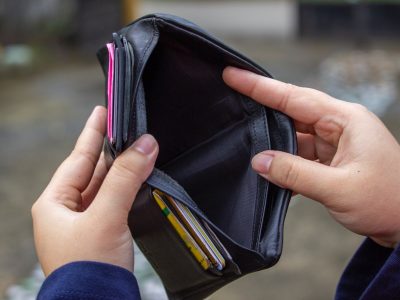Margaret Grimsley, a long-time registered nurse, is at the center of a crime scene in Chattanooga, Tennessee. The woman had been living in a small house outside of the city for twenty years when her landlord decided to file for eviction after Grimsley stopped paying her bills.
When the local authorities finally got inside the home, it was full of stolen patient records, prescription medications, and unused medical supplies. It’s one of the strangest examples of hoarding in recent memory. Now Grimsley is facing criminal charges.
The Warning Signs Pile Up
Kari Matthews, the owner of the property in question, became concerned when Grimsley stopped paying rent and piles of trash started collecting outside the home. For Matthews, it was a clear case of hoarding, a condition in which the person has difficulty discarding or parting with possessions because of a perceived psychological need to save them, regardless of their apparent value.
“We had an eviction. The person residing here was a hoarder, wasn’t paying bills as they should,” she told a local news outlet.
71-year-old Margaret Grimsley had been living in the house for 20 years when Matthews filed for an eviction. Several local deputies soon arrived at the house to investigate, but it was unlike anything they had ever seen.
The entire interior was full of trash, dirty clothes, and even human feces. “We found where she had been defecating on the floor…she was using clothes to wipe,” Matthews remembered.
But that wasn’t the most disturbing part. “We knew what we were getting into as far as a hoarding situation when we came in… then we started uncovering patient records, pill bottles, extra identities,” Matthews said.
Authorities also say they found a range of syringes and even blood vials from patients Grimsley must’ve treated in the past.
“We’ve pulled out entire original files on patients from the facility they were at,” Matthews said. Apparently, there were enough files on hand to fill an entire investigator’s van.
Police also found hundreds of grams of prescription pills including Xanax, Oxycodone, and Fentanyl, according to court documents.
Now, Grimsley is facing several criminal charges, including identity theft and possession of a number of prescription drugs for resale.
But Why (and How)?
It’s not clear exactly why Grimsley was holding onto these materials or how she got her hands on them in the first place. A local news outlet reached out to her after the charges came down. Grimsley says she meant to destroy the patient records but forget they were there. “To be perfectly honest I thought they were gone…but anyway that’s how those got there,” she said. Court documents show that she said the same thing to the local police upon her arrest.
However, medical facilities rarely ask their employees to destroy protected health information. HIPAA details specific instructions for deleting this information. By no means should a provider be able to take these records home, let alone store them in their house for several years. These records contain private, personal information that could be used to steal a person’s identity.
According to federal law, “medical offices must ensure paper and electronic records are destroyed by a method that provides for no possibility that the protected health information can be reconstructed.” Common methods including shredding, burning, and pulverizing documents.
As for the pills in her possession, Grimsley says she had nothing to do with it. She told reporters that she believes she’s being set up. “Some of those…I don’t know how they got there.”
She is still licensed by the Tennessee Board of Nursing and has been since 1969. However, that license is expected to expire next month. When asked if they were aware of the charges against Grimsley, the group said it hadn’t taken disciplinary action against the RN, considering, “Everyone is entitled to due process.” There is no state law that requires automatic action against a health professional’s license if he or she is charged with a crime.
However, according to state law, “If an applicant or a registered nurse already licensed by the Board is convicted of any crime, it is grounds for denial of licensure or disciplinary action.”
Grimsley is due in court on October 28th.
The Facts on Hoarding
Current estimates suggest that hoarding effects around 6% of the U.S. population, or 19 million Americans. It’s usually common among people who live alone, those who are considered obese, those suffering from OCD, and those with at least one family member that’s considered a hoarder. It can also be a risk factor for addiction.
Studies also show that adults between the ages of 55 and 94 are three times more likely to have a diagnosable hoarding disorder than adults between 34 and 44 years old.
It’s not clear what sets off the condition, however researchers believe it’s often linked to trauma and genetics. Over time, hoarding can lead to poor hygiene, unsanitary living conditions, the spread of disease and bacteria, and poor air quality.
If a person seems like they have a hard time letting go of things that most people would throw away, it may be a sign of hoarding. Experts say those suffering from hoarding should seek professional help. Treatment usually involves counselling and support groups. Cognitive behavioral therapy tends to be the most effective, with 70% of patients experiencing positive results, according to the latest recovery statistics.
Grimsley may need counselling more than a stay behind bars. Keep this information as your patients spend more time at home and less time in public.

















